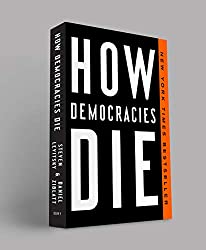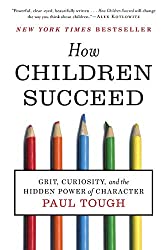
Rating: 9.0/10.
Trump shocked the world in 2016 when he won the election. How did this happen? This book explains how this result is actually a cumulation of decades of eroding democratic institutions and political polarization.
It’s not the people’s fault for voting Trump: several people (eg: Henry Ford) have gotten similar levels of popular support in the past. The difference is they weren’t able to gain entry into a major political party, and running as independent in a two-party system is doomed to fail. Thus, it’s important for the establishment to act as “gatekeepers” and keep out demagogues that violate democratic norms. The book marks 1968 as the turning point for American democracy: the McGovern-Fraser Commission made it possible for outsiders to win the primaries while bypassing the establishment.
When Trump won the Republican primaries in 2016, Republicans should have sided with the Democrats and endorsed Hillary Clinton. Even though they are the opposite political party, they at least respect the democratic institutions, and losing the election is far preferable to losing democracy entirely. This is what happened in France to keep out Marine Le Pen. The prominent Republicans didn’t do that, and endorsed Trump, so at this point the election was basically a toss-up.
After winning an election, an anti-democratic leader has many opportunities to dismantle the institutions and tilt the playing field to their advantage, like targeting the media, disenfranchising voters, threatening political opponents. Often these rule changes are done in times of crisis, when it’s more acceptable to bypass the Congress procedures. Several examples of a democracy that fell apart this way include Peru (under Alberto Fujimori) and Venezuela (under Hugo Chavez).
While there are legal guardrails to ensure checks and balances, they are not enough; it’s equally important to have unwritten norms that ensure democracy’s survival. These author calls these “mutual toleration” and “institutional forbearance”, basically both parties should respect the other’s legitimacy and right to exist, and not use underhanded tactics to win elections or drive the opposition out of existence. Without this norm, there are many opportunities to push the law to its limits and do things that are technically legal but against the spirit, like using executive orders in non-emergencies, denying Supreme Court appointments, filibustering (stalling the process) to indefinitely delay action when you don’t have enough votes to veto it, etc. When both parties do this regularly, the system grinds to a deadlock.
The guardrails were challenged several times in American history. Roosevelt tried to pack the Supreme Court, but despite his high popular approval, this movement was strongly opposed by both parties so it failed. Nixon’s wiretapping was an assault on democracy, and he was forced to resign or else be impeached. However, during the Bush and Obama eras, politics became more polarized, with increased intolerance of the opposing party and using legal mechanisms in political ways.
Trump has ran into the guardrails numerous times, but so far, they have prevented him from completely turning the democracy into a dictatorship. Still, he violates the norms so egregiously and with such frequency (eg: lying several times a day), that this behavior has become normalized. Both parties need to stop being so polarized and be more accepting of each other, as democracy is more fragile than we often think.



